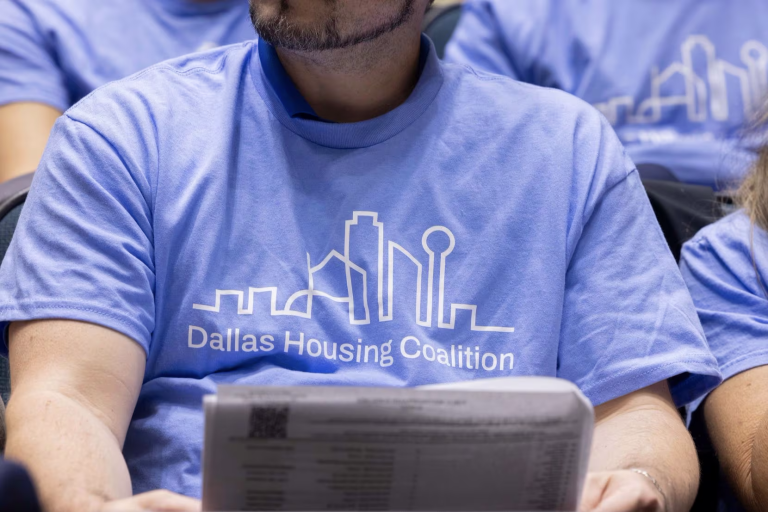Market reforms aren’t enough to solve Dallas’ housing crisis
Mayor’s approach is only half the solution.
First published in Dallas Morning News.

This month, Dallas Mayor Eric Johnson signaled his lack of support for a large affordable housing bond, stating that “historically, government is simply not good at playing the role of a housing developer.” Instead, Mayor Johnson advocated for zoning and permitting reforms that would lead to “real scale” that “only the private sector can provide.”
Johnson is wrong to portray market reforms and public subsidy for affordable housing as an “either/or” proposition. More to the point, we must ask who Johnson imagines that housing should be affordable for. If he wants to include low-income people and people at risk of homelessness, then zoning and permitting reforms alone won’t cut it. These reforms may stabilize housing cost increases to a point, but without subsidies developers cannot build housing with rents cheap enough for low-income households.
Our organizations have decades of experience supporting low-income residents of Dallas and Texas to achieve decent, affordable housing free of discrimination. We do this through research, advocacy, education, counseling and legal support.
When discussing housing affordability, it is important to consider who has the most difficulty affording housing. The numbers are clear: Dallas has an affordability crisis that is concentrated among its poorest households. According to the Child Poverty Action Lab, more than 9 in 10 renters making roughly 50% or less of area median income are cost-burdened, paying more than 30% of their income toward rent.
National Low-Income Housing Coalition data show that 85% of Dallas-area extremely low income (less than 30% area median income) renters are paying more than half of their income toward housing costs, and so are 37% of very low income renters (30-50% area median income). By comparison, only 1% of middle-income renters are paying that much of their income toward their housing cost. Black and Hispanic or Latino households in Dallas are more likely to be lower income and struggling with housing costs.
So then the question should be, can land use and permitting reform make housing affordable for these Dallas households? Without subsidy, absolutely not. Making housing affordable for these households requires public support, full stop.
This view is shared by the very researchers who support market-based reforms. Michael Manville, Michael Lens and Paavo Monkkonen, some of the most vocal pro-market reform researchers in the country, write in the journal Urban Studies: “Virtually every academic supporter of upzoning considers it necessary but not sufficient. A strong role remains for low-income housing subsidies, and we support dramatic increases in such redistribution to low-income people.” An Urban Institute research team states that zoning is most effective for increasing affordability, “when combined with incentives to develop subsidized housing.”
Private market reforms may result in stabilized middle-income housing costs. However, there is no evidence that market-based reforms alone can produce housing that is affordable to lowest-income households. Private developers are not philanthropists. Fully funding an affordable housing bond and targeting funds to the households with the greatest need are the most important actions the city can take to support residents who are struggling to achieve affordable housing.
Ultimately, Dallas will need to decide whether the goal is stabilizing middle-income rents or addressing the city’s most severe housing needs. It can be both, but let’s not trick ourselves into thinking that we can address affordability for the people struggling the most without public support.
Ann Lott is executive director at the Inclusive Communities Project. Ben Martin is research director at Texas Housers.
First published in Dallas Morning News.